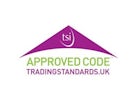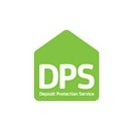Before you make the decision to become a landlord there are several important factors that you must take into consideration, some of these include.
What You Need to Consider
Arrange a Free Market Appraisal
Mortgage Permission & Insurance
It is vital that if you have a mortgage on the property that you seek advice from your lender. Some mortgage lenders unfortunately do not allow you to let out your property and others may have certain restrictions, therefore you must thoroughly check your contract or speak to them directly. Before we can advertise your property to let we will need a “Permission to let” letter from your lender.
It is also vital that if you have insurance cover on the property (particularly Buildings & Contents) that you inform them that you will not be living there and it will be tenanted as this may affect your insurance policy.
Safety Regulations & Energy Performance Certificate (EPC)
Gas Safety Certificate– If the property has a gas supply you MUST provide us with a Gas Safety Certificate. These are valid for 12 months and once it has expired it must be retested and another certificate provided.
Electrical Safety Record– to ensure that all our landlords keep within the building regulations and no tenant is ever placed in a property that falls short of the requirements, Belvoir stipulate that an Electric Safety Check is completed every 5 years. A newly built property will have a recent electric installation certificate in which case the Belvoir requirement is that the Electric safety check is conducted after 12 months.This is now law for all new tenancies effective from 1st July 2020 and all existing tenancies by April 2021.
Furniture & Furnishing – The Government first introduced Regulations in 1988 requiring filling material used in furniture, furnishings and re-upholstered items to be fire resistant. Subsequent amendments to the original legislation now make it a requirement for any furniture and furnishings supplied in a property let for the first time since 1st March 1993 to meet such standards and to carry the appropriate label.
EPC – The Government introduced a grading system that will be required to indicate a property’s “green energy saving credentials”. Every property that is marketed to let in England and Wales, requires an EPC. An EPC is issued by a qualified energy assessor. The main purpose of an EPC is to provide an energy rating for each rented property and highlight how a property can be altered to become more energy efficient and thus assist in the Government’s efforts to reduce global warming. Once this is created it is valid for 10 years and freely available from the Landmark Register. If there is one currently, we can simply download this and add to advertisements.
Legionella Risk Assessments- The Health & Safety Executive state –
L8 Approved Code of Practice (ACOP) was revised and republished in November 2013. It applies to the control of Legionella bacteria in any undertaking involving a work activity AND applies to premises controlled in connection with a trade, business or other undertaking where water is used or stored and there is a reasonably foreseeable risk of exposure to Legionella bacteria (L8 ACOP, paragraph 22).
The Health and Safety Executive guidelines state that a landlord has a legal responsibility to ensure the health and safety of their tenant by keeping the property free from health and safety hazards. Section 3(2) & Sec 53 of the Health and Safety at Work Act 1974.
Landlords may carry out their own assessment to ascertain if testing for the presence of legionella is required. If the landlord would like their Agent to carry out the assessment then the Agent may or may not charge for this service. If the Agent does not feel competent to carry out an assessment they may instruct a contractor to complete it, again there may be a cost to the landlord for this service. The person carrying out the assessment must be deemed to be competent and the criteria to prove competency is not difficult.
Tax Obligations
Resident Landlord (Living in the UK) – If you are a landlord living in the UK you will need to carry out a self-assessment and return this directly to the Inland Revenue at the end of every tax year. We will supply an annual statement of the rental income you have received to help you with the self-assessment. Please remember the revenue expect returns to be submitted as per the share on your title deeds i.e. husband wife are usually 50/50 so all income and expenses are split down the middle.
Non Resident Landlord (Living overseas) – If you are living overseas you will need to fill out a NRL1 form (available on the Inland Revenue website) and send it to the Inland Revenue. Once they have received and approved this they will then send us a Tax Exemption Form (NRL8) (that is linked directly to Belvoir Sleaford. Therefore, if you change letting agent etc you will have to apply for a new form), if we do not get this we legally have to deduct 20% of the net rental income.
We advise you seek personal advice from the Inland Revenue prior to becoming a landlord.
Contingency Fund
Making sure you have a sufficient contingency fund in place will be extremely helpful for any maintenance issues that need repairing. It not only reduces the risk of having to fork out all of the money in one go but will also keep your tenant happy if they don’t have to wait for a repair – especially if it is their boiler. A happy tenant usually means a long term tenant!
Types of Tenants
You will need to decide what type of tenants you would be happy to accept at the property before you put it on the market for rental (families, professionals, etc). Our policy is No Smoking inside our properties and no one strictly on benefits, tenants with tops where employed are usually accepted with a guarantor but case is individual. Referencing guidelines preclude anyone with unsatisfied CCJ’s – so thorough independent referencing is very important.
Pets
A large part of the UK population has a pet (or two!) as part of their family. You need to weigh up the pros and cons of allowing a pet of the property. Allowing pets will widen your market for potential tenants. However we understand the concerns you may have as a landlord accepting pets at the property, one of the main concerns is pet damage. Every tenant has to pay extra rent towards added wear and tear and a security deposit of 5 weeks rent which will be in place to cover any dilapidations at the end of the tenancy including pet damage, but we can also Guarantee that all the carpets are cleaned to a professional standard as a mandatory condition which is signed for in a pet disclaimer.
At Belvoir we carry out property inspections (approx. every 5 months) to check its condition, we also offer a Buildings and Contents insurance policy which includes cover for pet damage.



